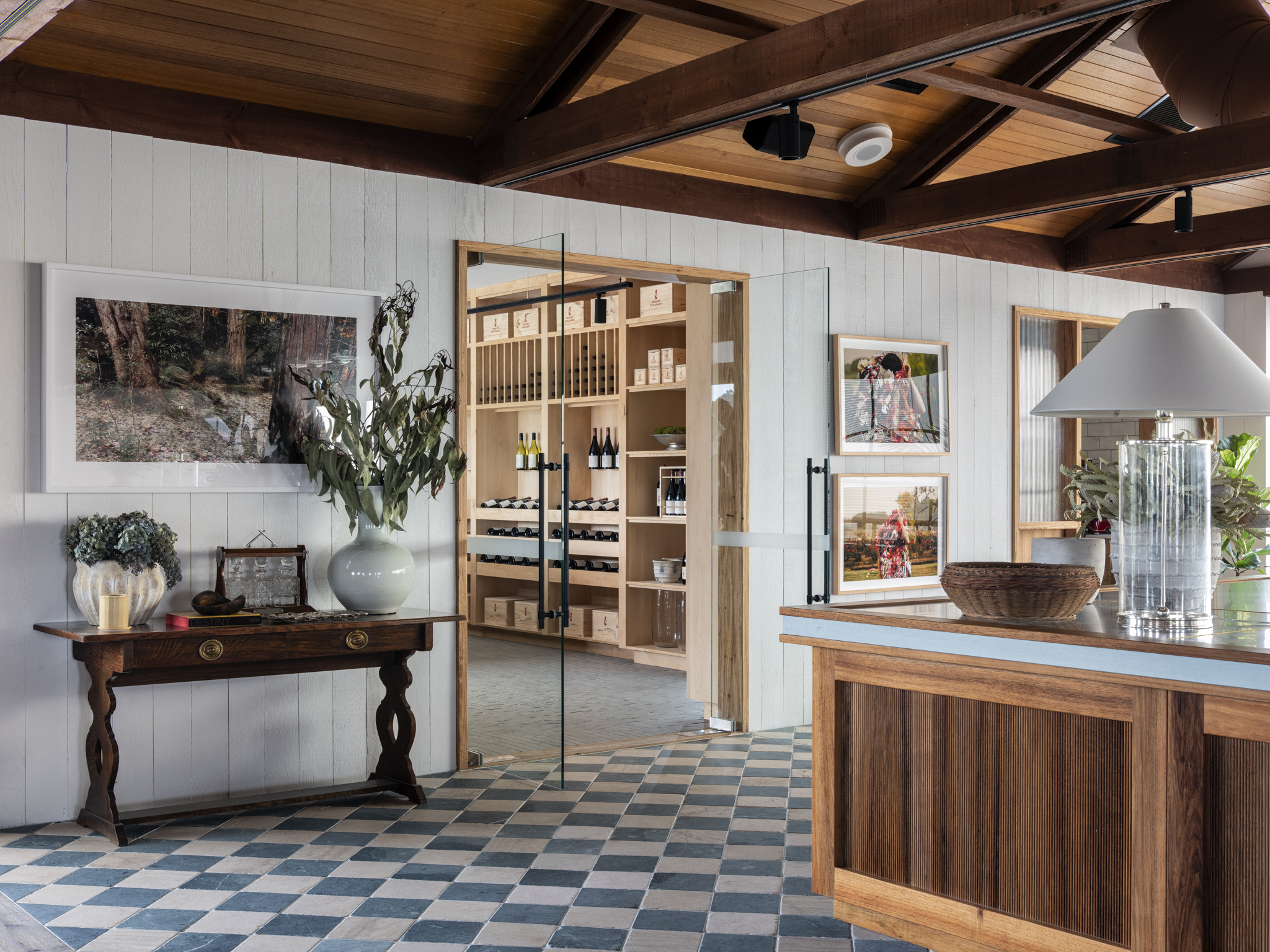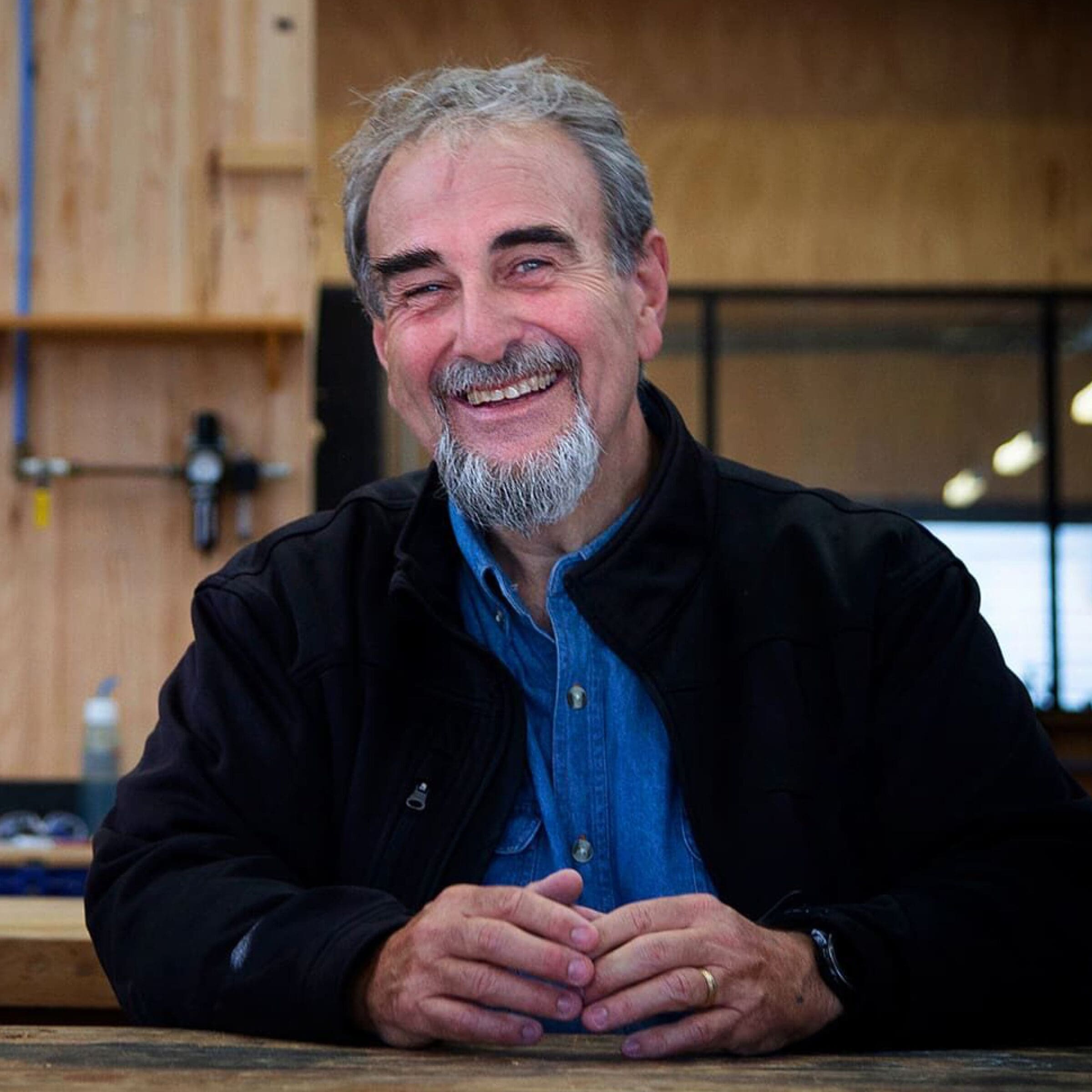Mount Pleasant Wines by Luchetti Krelle
Getting better with age, wine and timber are celebrated in this Hunter Valley winery renovation
The Hunter Valley in New South Wales is one of Australia’s renowned winegrowing regions. Home to some of the country’s finest cellar doors, it’s viticultural history dates to the late 18th century. Included in this rich history of fine wine making is the award-winning Mount Pleasant Wines by founder and wine-maker Maurice O’Shea. Committed to his craft, O’Shea’s legacy has set a high standard for modern Australian winemaking bolstered by each bottle’s elegance, balance and longevity. Having last been updated in the early nineties, the winery needed a makeover to match the wine’s valued reputation. Having received countless awards for their designs revamping hospitality venues home and abroad, the team at Luchetti Krelle was put to the task of bringing the winery to match the calibre of its wine production, and the result is nothing short of breathtaking.
Ridding the winery of its appropriated colonial features, Luchetti Krelle sought to redesign both the external and internal structures. Stripping the existing facilities down to the core, the internal fit-out saw an update to the wine shop, cellar door, dining, and lounge areas.
Tasmania’s prized timbers included in revamp
Sourcing almost all materials from Australia to revamp the space, the ten varieties of timber used in the renovation were also local, including the specification of Tasmanian Celery Top Pine. Upon entry to the intimate wine shop space, the creamy tones of Celery Top are revealed in the floor to ceiling custom cabinetry used to display the esteemed wines.
Luchetti Krelle Principal, Rachel Luchetti, further explains how the use of this prized timber came to be included in the project.
“Wine has always been carefully and traditionally packaged up in pine boxes and upon opening the box the consumer is hit with the scent of fresh pine. We wanted to recreate this experience but in a premium and upscale way. From a joinery perspective, we wanted something that would hit this mark, and be workable and durable, which is when the idea of using Celery Top popped up,” says Luchetti.
“The timber is even and consistent in appearance and looks incredible. We used a minimal matte sealant on the Celery Top to ensure the timber could breathe and its natural scent could be picked up upon entering the room,” says Luchetti.
Blackwood chosen for its quality and character
With a true appreciation for materials that speak to longevity and elegance, the client showed a preference for using products like brass, fine textiles, and leather in addition to an abundance of varying Australian hardwoods. And the choice in using some of Tasmania’s finest timbers didn’t stop at Celery Top.
Tasmanian Blackwood was also used as shelving behind the bar and in the bar fronts in both the barn and the homestead areas of the winery to complement the pre-weathered zinc countertop and Italian marble tiles underfoot.
“We wanted to use a unique Australian timber for the bar that had a furniture grade quality to it. Tasmanian Blackwood is deep in colour and has an interesting variation to the grain and was exactly what we were looking for. It’s a timber that has a lot of character and perfectly suited the bar fronts,” says Luchetti.
Keeping true to the craftsman quality found in every detail, hand-turned Blackwood side tables were made by expert timber craftsman Charles Sandford. Accompanying the tables, the exquisite use of Blackwood can also be found in the dining chairs, bar stools and fanback chairs by celebrated furniture maker, Glen Rundell.
“The joiners and makers were thrilled to be working with the Blackwood and Celery Top Pine hardwood timbers and were proud of the outcome. Just like the materials we used, all the people who collaborated with us were local makers. We wanted to tap into that Australian vernacular and the history and longevity of the winery, and using these timbers and tradespeople helped us achieve that,” says Luchetti.
An appreciation for longevity
With the project’s construction occurring during the pandemic, the use local materials was even more important and, Luchetti says the appreciation for local has only increased.
“We’ve noticed a renewed value for Australian products and materials and an appreciation for timber to be used where possible. Today there are more manufacturers than artisans so it’s special when we can work with these artists who also share the appreciation for lasting products like solid timber,” says Luchetti.

























